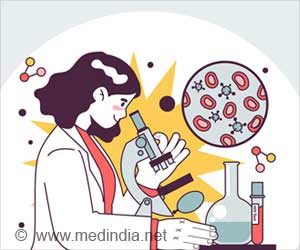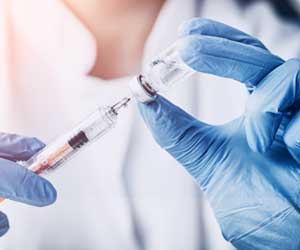Studying a virus similar to HIV that infects monkeys have offered clues to scientists for developing a possible new target for vaccines or therapies in humans.

SIV is a type of retrovirus that infects primates. Strains of SIV that crossed over to human beings resulted in the evolution of HIV.
The researchers said that in rhesus macaques, SIV causes simian AIDS (though in many primates it is harmless) and studying the virus in these animals offers crucial insights into how HIV acts in humans.
The discovery by researchers at UCSF may shed light on the mystery of why some people infected with HIV are better able to control the virus, live longer and have fewer health problems associated with HIV, than others who have been infected as long.
It also provides a potential new target for developing therapies or vaccines for the deadly disease.
The cells that have the protective effect, called Th17 (T helper 17) cells, are a subset of the type of disease-fighting immune cell, which are targeted and killed by HIV and found in the gut of both primates and humans.
Advertisement
Interestingly, the researchers also discovered that the Th17 cells were not affected by SIV in another primate, African green monkeys, in which SIV infection is harmless and does not cause disease.
Advertisement
"Further, if a treatment can be developed to increase Th17 cells in the gut, it may allow for a more effective immune response after exposure to an HIV vaccine or the virus itself," he said.
The team first determined the levels of Th17 cells in the gut of sixteen rhesus macaques and then infected them with SIV.
They found that the monkeys with more Th17 cells to begin with were better able to control the virus.
They then gave animals drugs that reduced Th17 cells and found that reducing the number of Th17 cells made controlling SIV more difficult for those animals.
"We found great variation in the levels of Th17 cells, with as much as a five-fold difference in numbers between animals. We are not sure why this is the case. It could be genetically determined or perhaps due to a previous exposure to a type of bacteria that stimulates production of Th17 cells," said Hartigan-O'Connor.
This study is part of a series of investigations undertaken by scientists at the UCSF Division of Experimental Medicine into how SIV, and by extension HIV, interacts with the immune system in the gut.
The earlier study was focused on chronic infection and persistent inflammation in the gut.
"The earlier study addressed the cause and consequence of inflammation after infection. We found that inflammation induces an enzyme that knocks out Th17 cells, which normally help to keep the gut intact, and that disease progression was faster.
"Reciprocally, we have now found that animals do better if they have many Th17 cells at the outset of infection.
We are gradually increasing our understanding of this important aspect of the immune system and we are working to translate this understanding into an approach that benefits patients," added study senior author, Joseph M. McCune, MD, PhD, chief of the UCSF Division of Experimental Medicine.
This study has been published in the Science Translational Medicine.
Source-ANI















